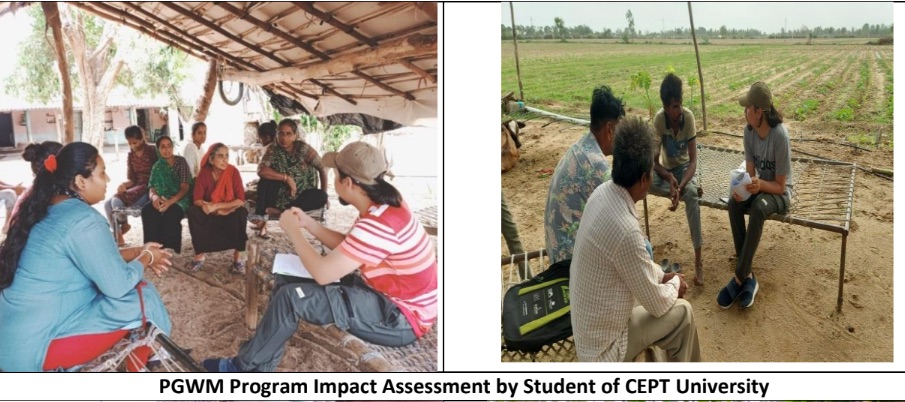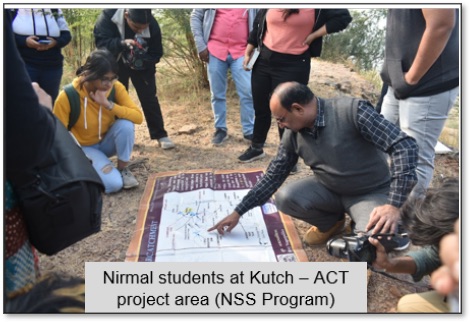Students Involvement in Field Projects ACT (Arid and Communities and Technologies Ltd)
Author- Dr. Yogesh Jadeja, Founder and Director, Arid Communities and Technologies
While working on groundwater management projects, we, at Arid Communities and Technologies (ACT), strongly felt that the fresh students of geology, engineering and agriculture sectors have very limited field level practical knowledge. Also, the limited external and grassroot exposure in our education system results in narrow and restricted mindset among students. This, in turn, limits their output as when they join organizations. On the other hand, many projects have specific need of data in volume, which is difficult to measure or acquire due to lack of sufficient human resources within the organization.

To resolve these constraints the students have been considered as critical mass. There are many courses at master and bachelor level eg. geology, agriculture, etc. have field-based activities such as project work, dissertation work etc. To use this as an opportunity to influence education system and to built capacities of students in integrated manner, ACT has begun to invite students for various activities required for resource mapping and management. University’s geology departments have been contacted and offered student’s field work along with provision of Co-guide and some actual expenses support. This has helped ACT to create huge database and mapping, while the students gained actual field level practical knowledge on groundwater, geology and its social application.

Gradually, based on evolution in our projects, we have also involved students from other disciplines. At present ACT is regularly inviting students from universities across state and country.
The type of collaboration has also evolved over time. Some of these are:
(i) ACT’s members are going as visiting faculty for teaching hydro-geology,
(ii) Institutes like TISS are regularly organizing winter schools in ACT’s field areas,
(iii) NIRMA and CEPT universities students are visiting ACT for studio.
In addition to this now ACT is entered in formal MoU with many academic institutes. ACT also has collaboration with Gujarat Vidyapith and is running one 02 credit water resource management course in one of Vidyapeeth’s programs.
Students ranging from bachelor, Master and PhD studies get engaged with our projects.
 The collaboration with WIN has resulted in greater association, including joint projects, with premier institutions like IIT, under suitable multiparty MOUs. That has also helped bring greater scientific and technology content in our our project implementation and documentation, and creates a larger potential to influence policy as well as training content for scaling up the process.
The collaboration with WIN has resulted in greater association, including joint projects, with premier institutions like IIT, under suitable multiparty MOUs. That has also helped bring greater scientific and technology content in our our project implementation and documentation, and creates a larger potential to influence policy as well as training content for scaling up the process.
Conclusion
The entire process has helped ACT to bring interdisciplinary and transformational grassroot level experiences to the mainstream education system. Simultaneously ACT and the communities have also benefited by this process in following ways:
- Data collection, Mapping of natural resources, Scientific approach and Research
- Process documentation
- Evaluation of project and Impact assessment
- Generation of various training content and material, and outreach activities
- Cost effective implementation of projects
- Potential to recruit talented and committed students, from those who have worked on our projects
The students have benefited in following ways:
- Understanding grassroot level communities and challenges through practical field experiences
- Academic gain in terms of Improved ability to convert textbook knowledge to ground
- Change in mindset
- Resource support for project work
- Greater effectiveness in job due to their grassroot exposure and understanding
Contact Email:

